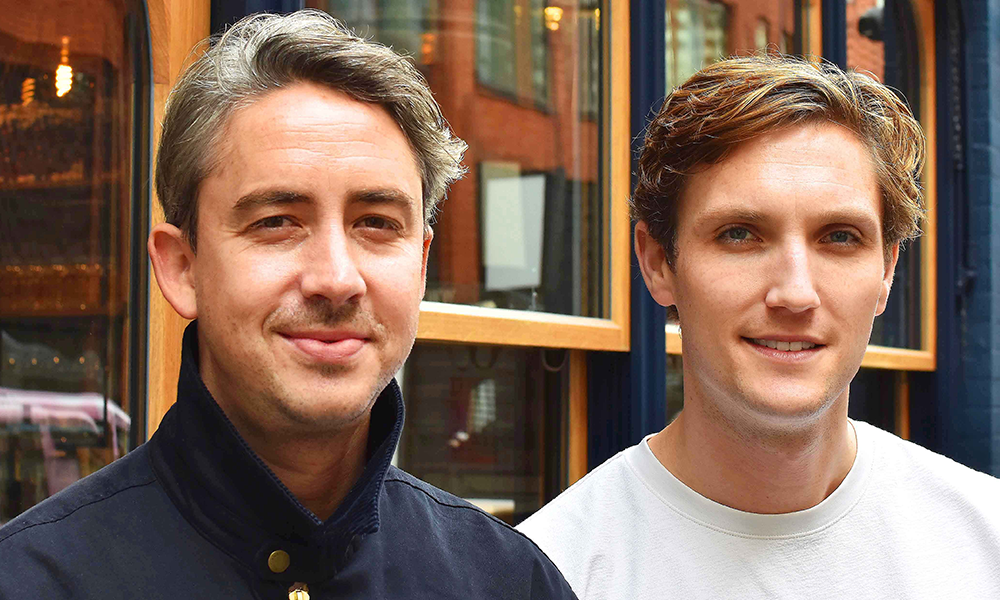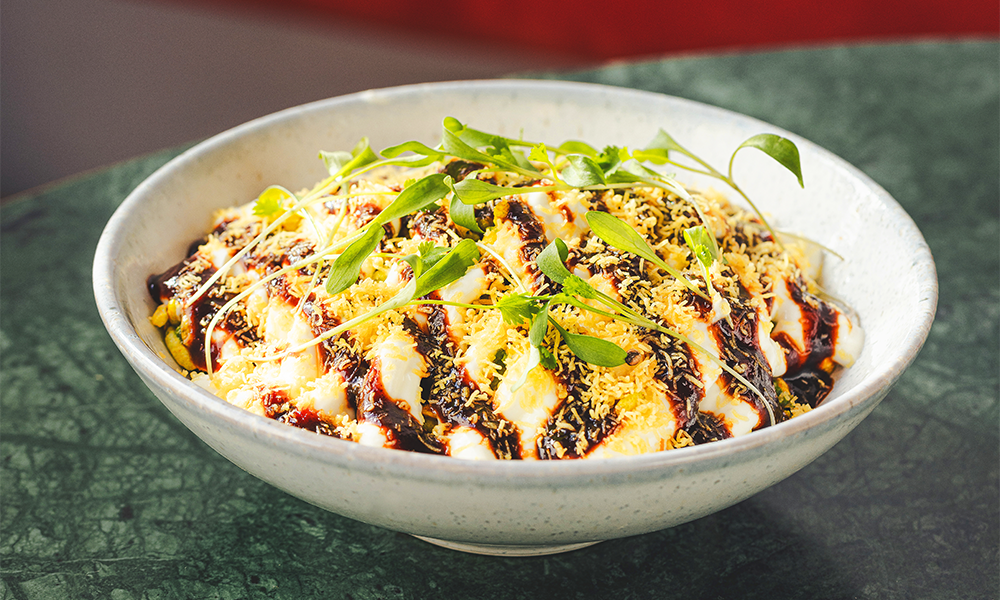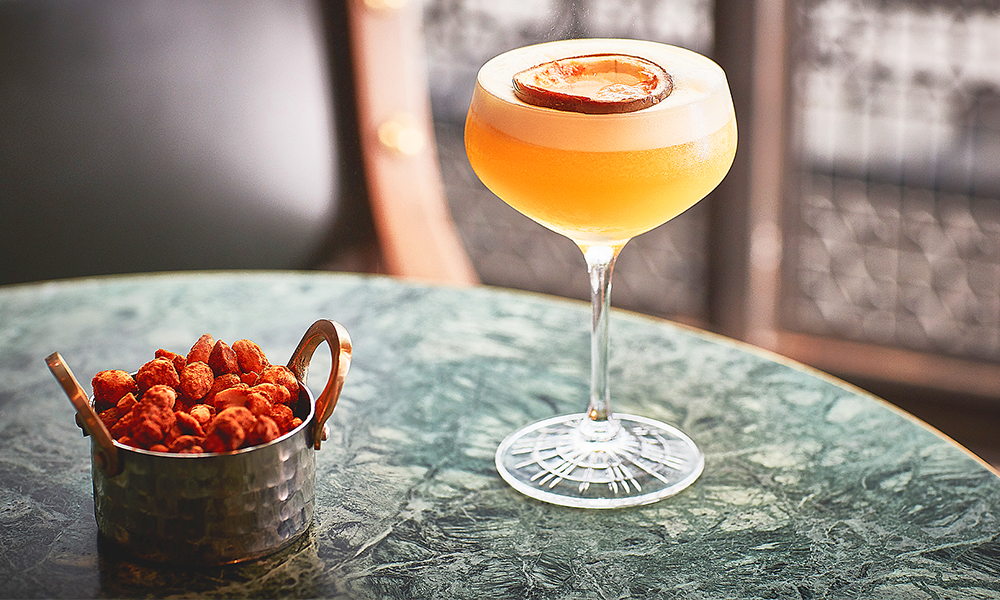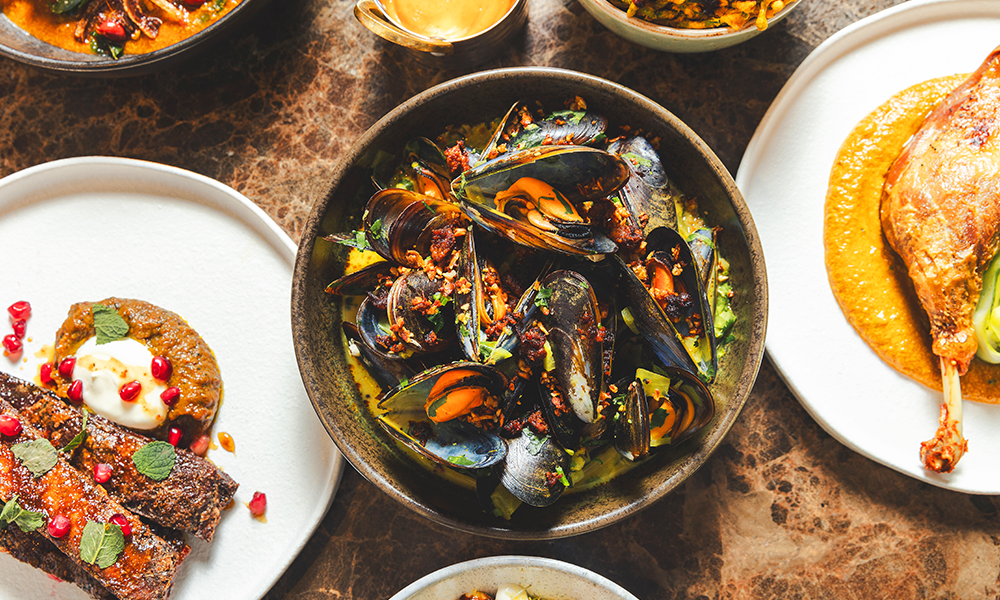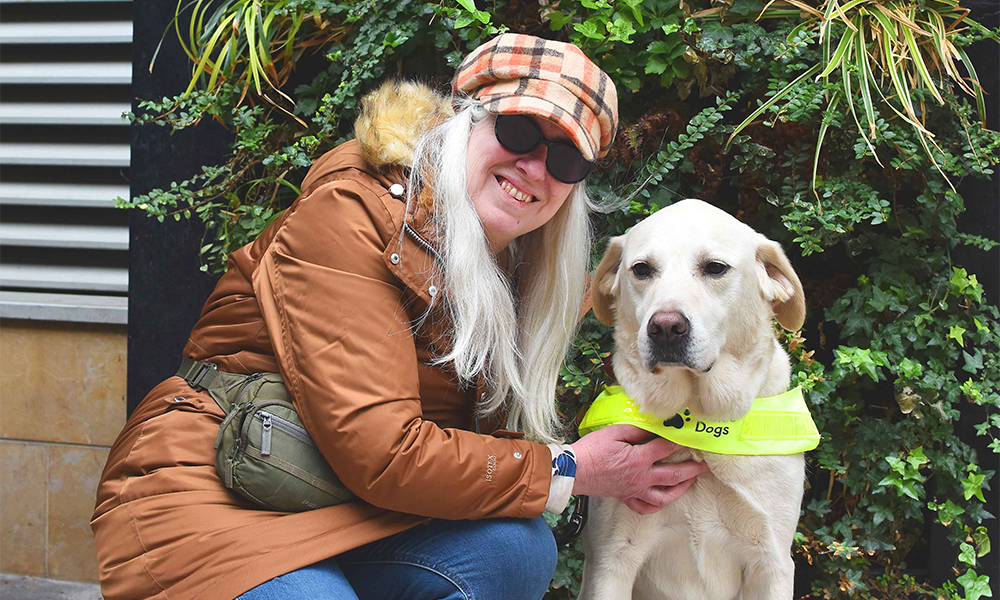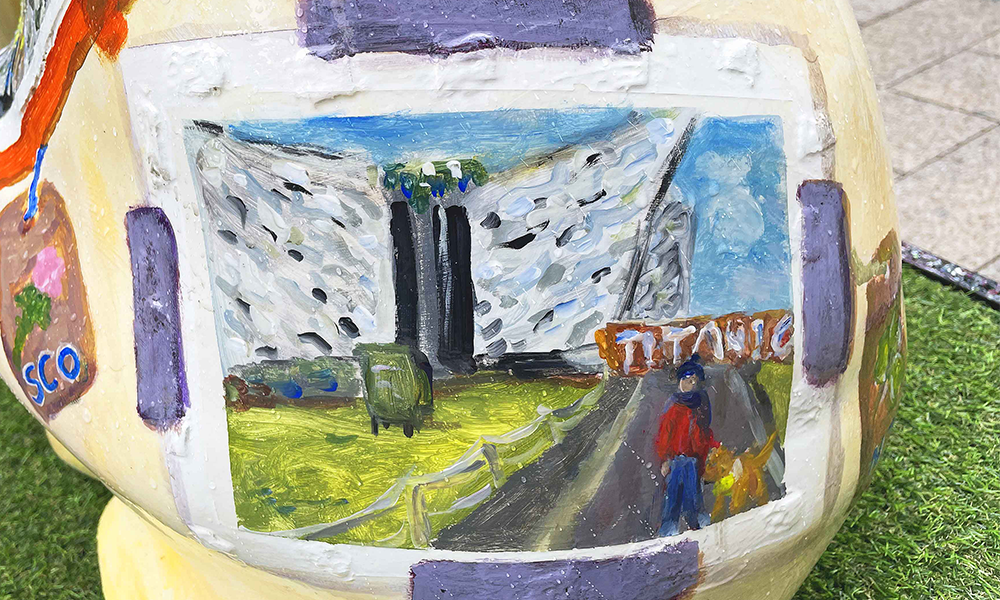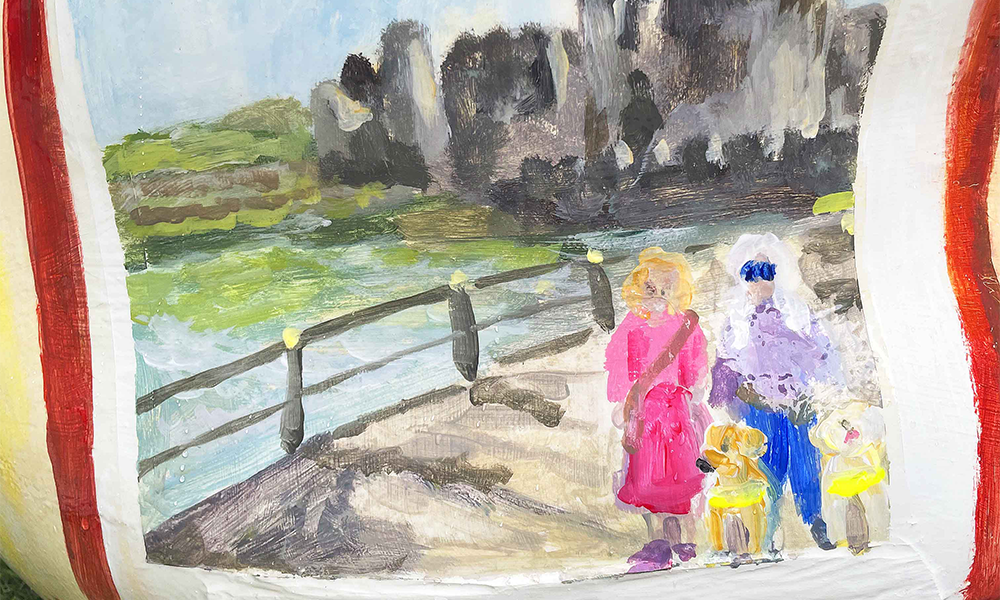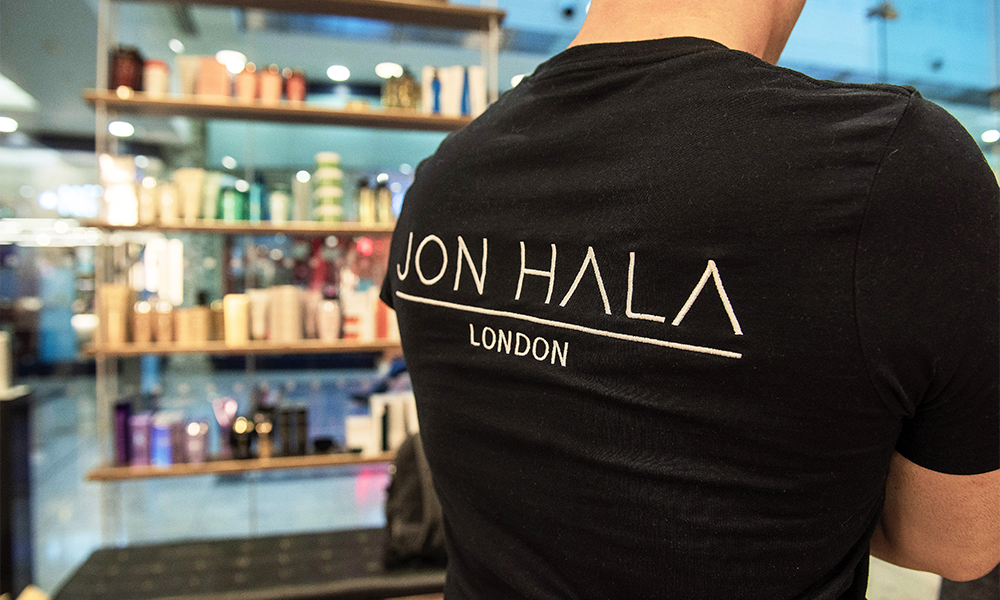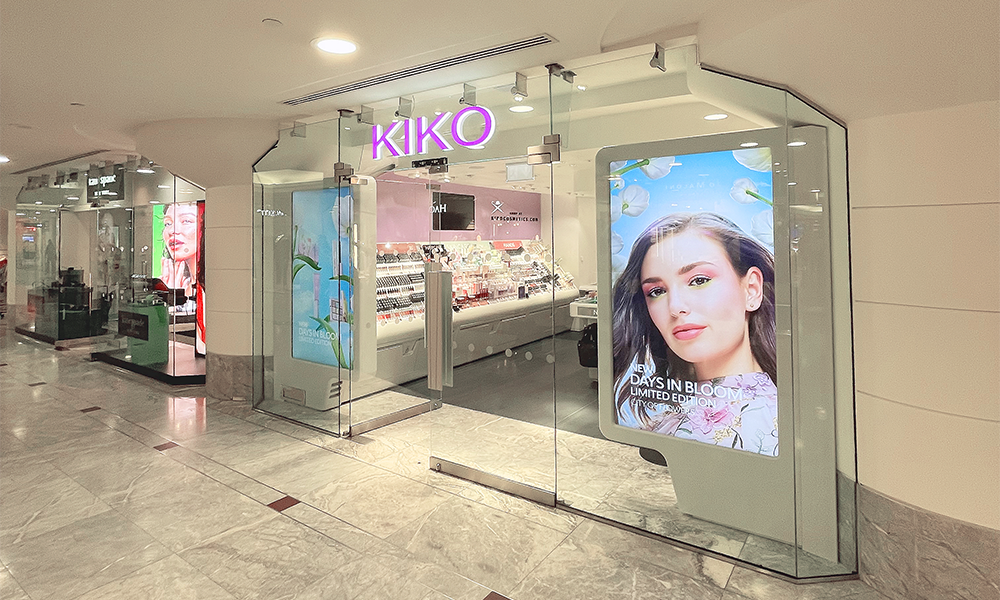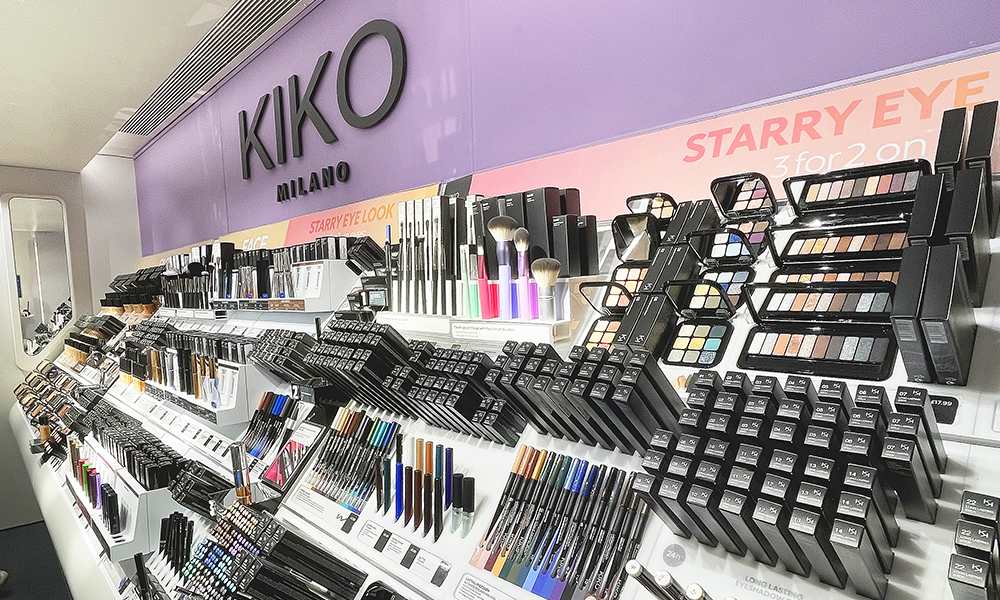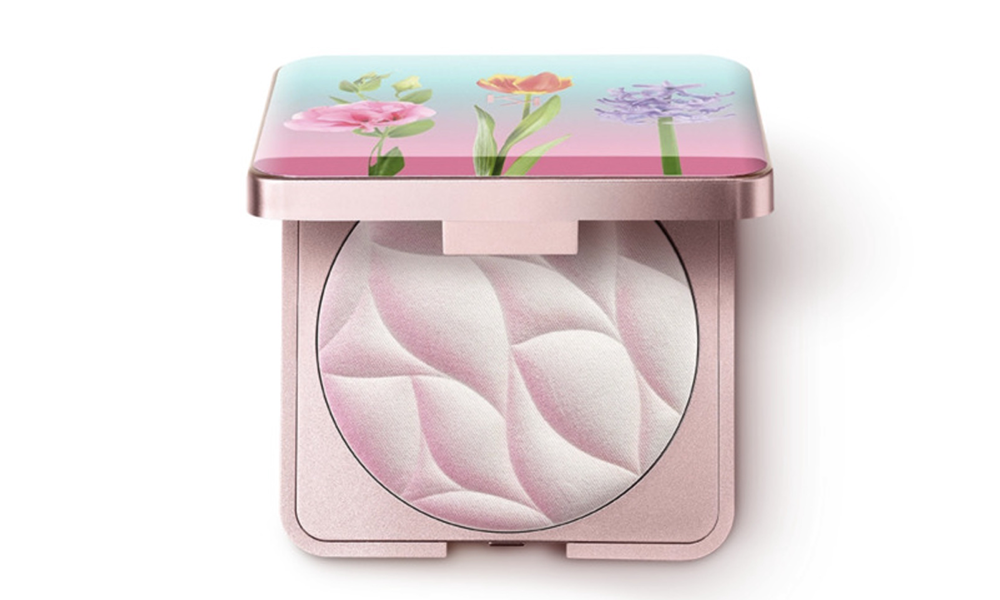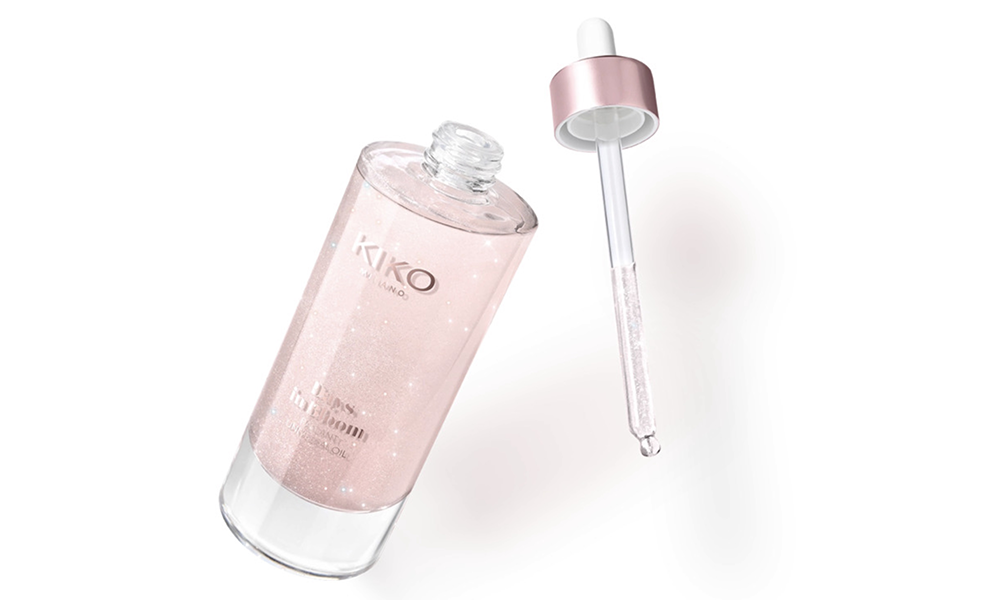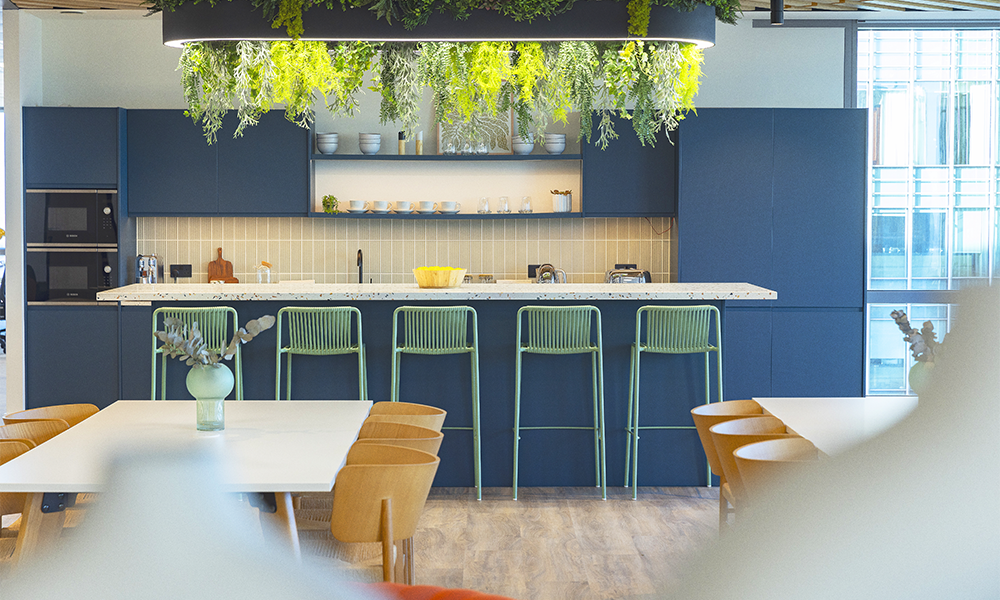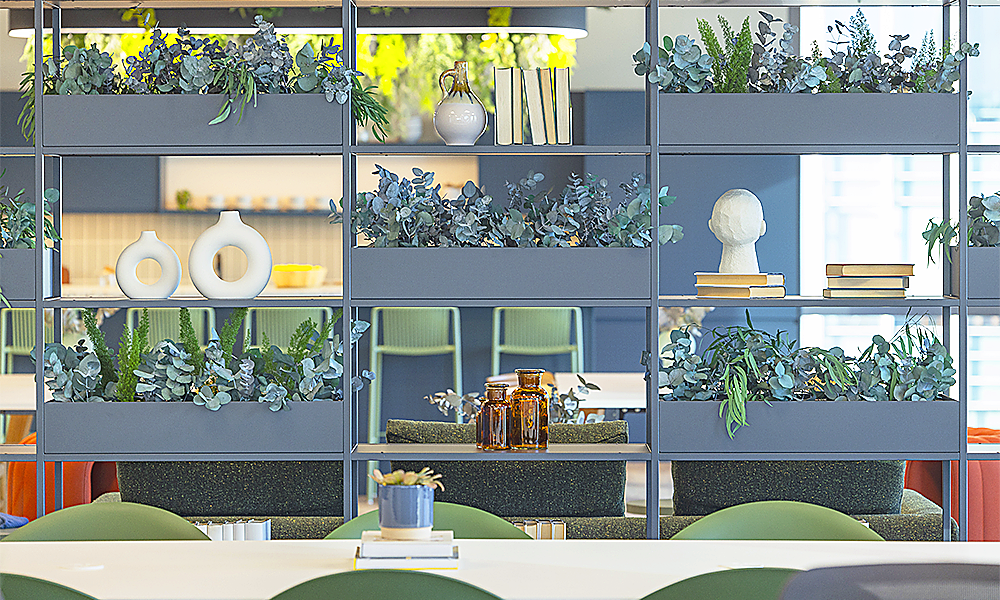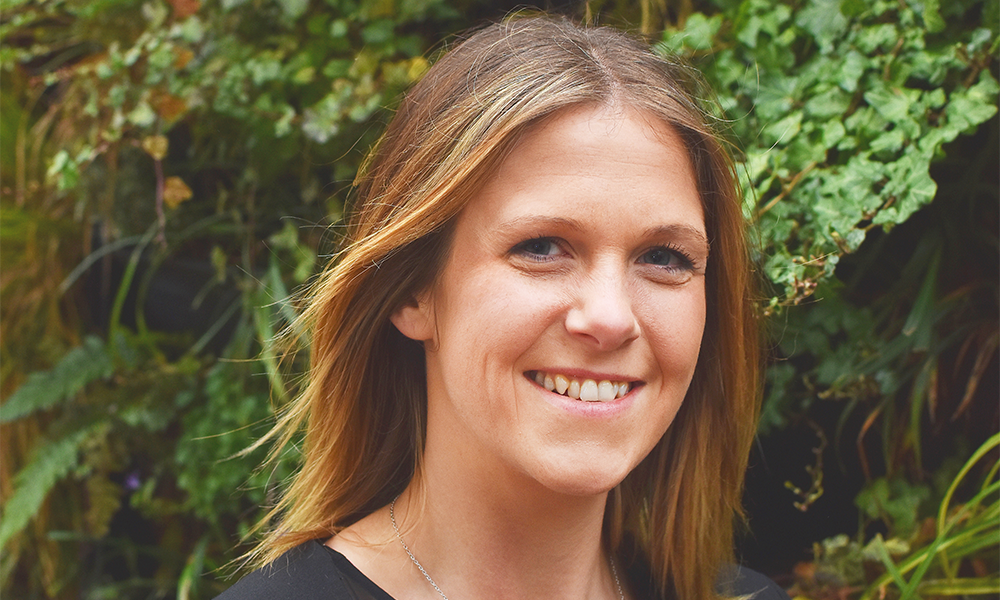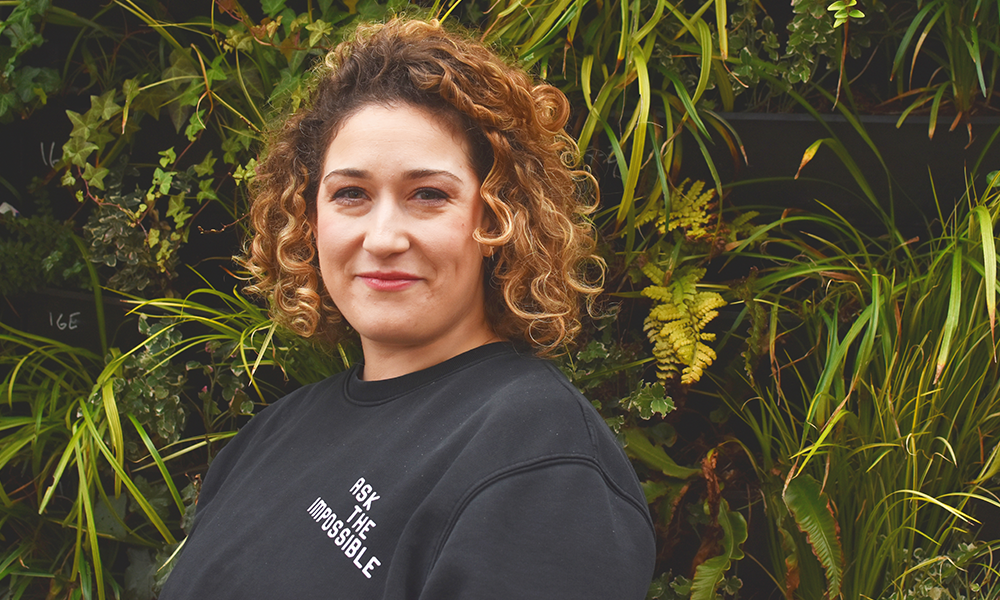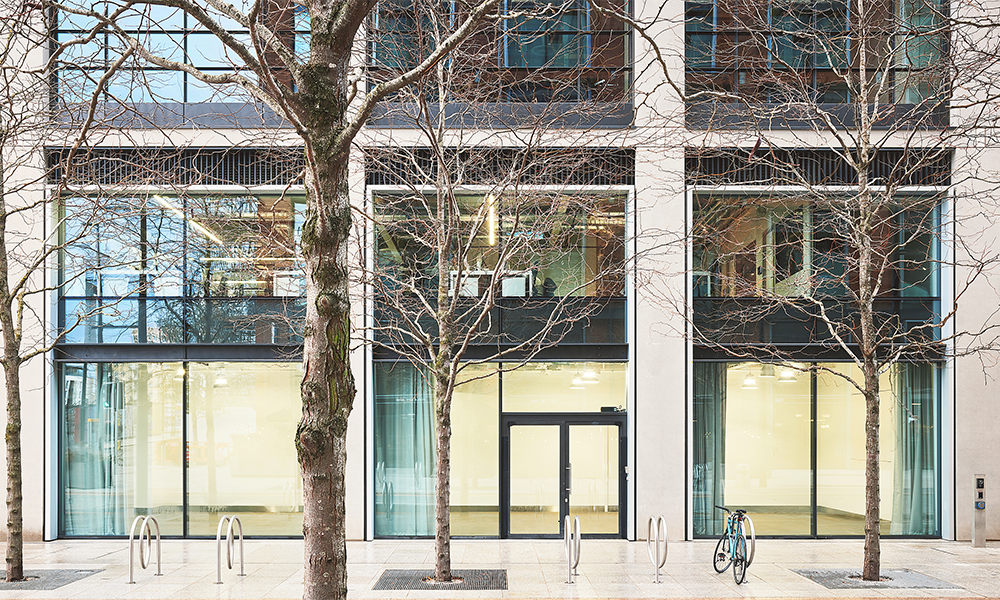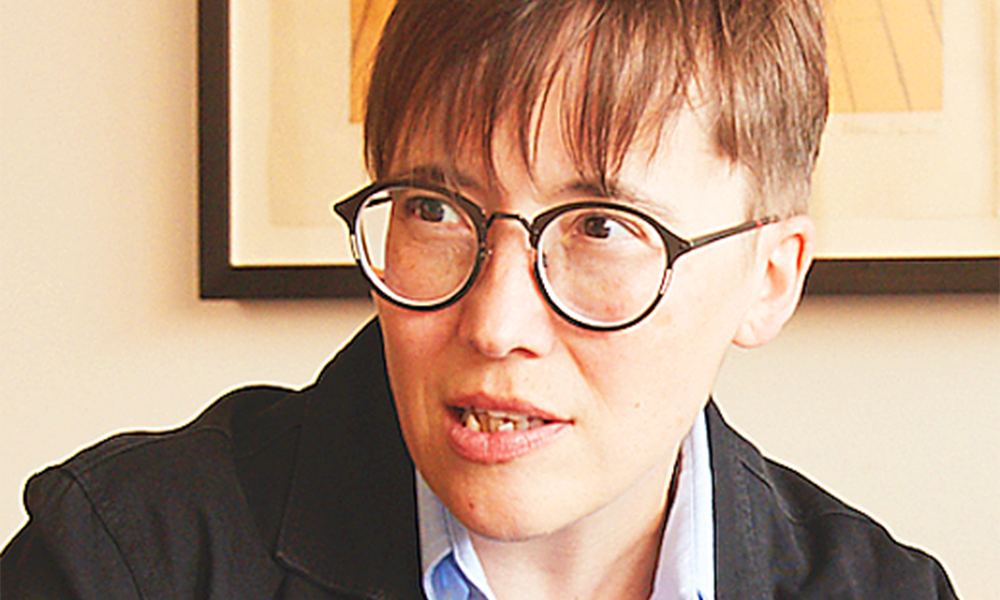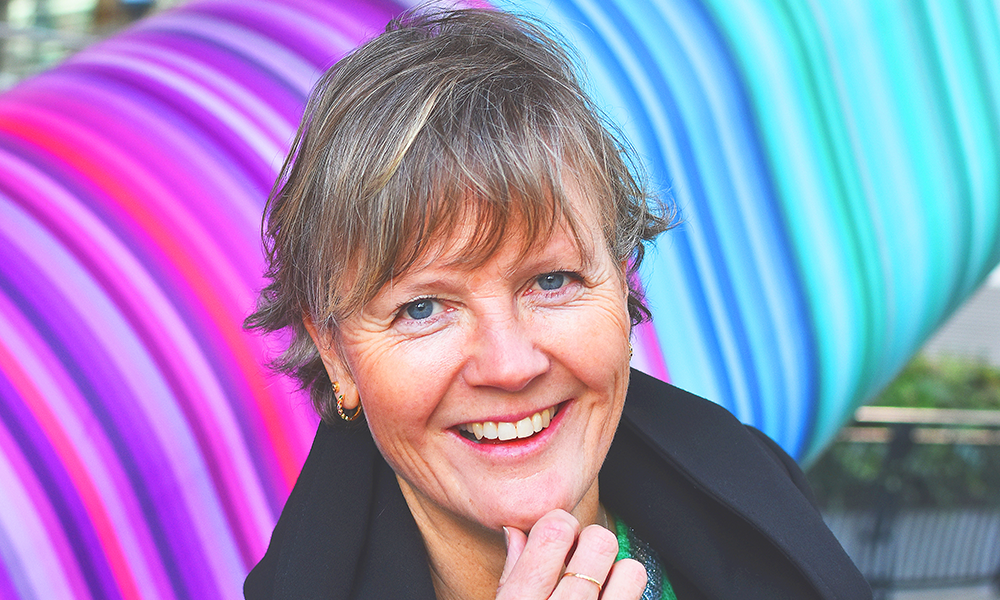The newly opened market hosts a cafe, food stalls, a florist and workshop facilities beside the dock
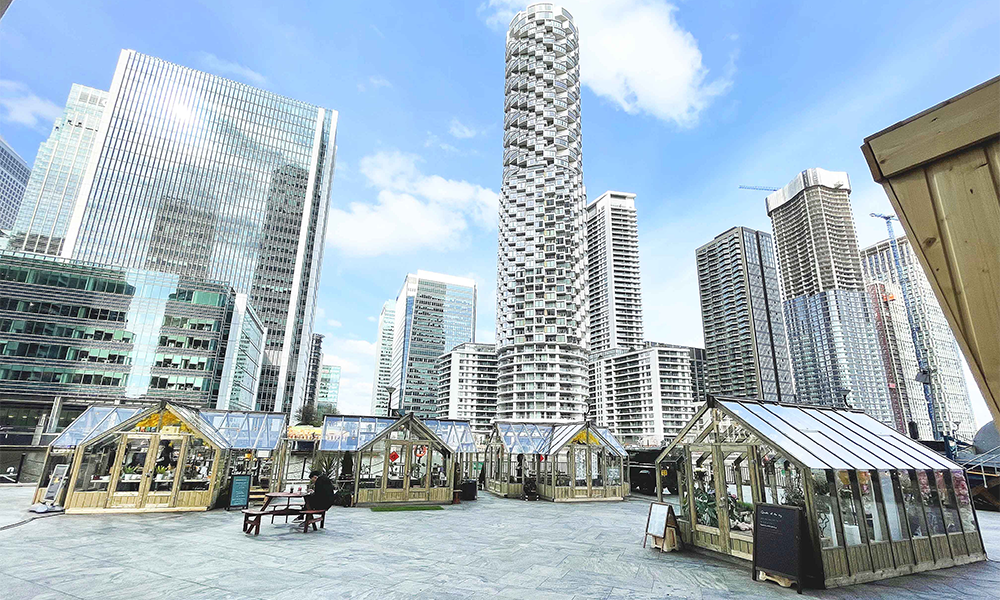
Subscribe to our free Wharf Whispers newsletter here
One of the criticisms levelled at regenerated parts of London is that they can lack atmosphere.
Crisply manicured parks might look great as the promise of “public realm” is dangled before planning officials.
But the Isle Of Dogs is littered with odd chunks of land that don’t really do anything. Perhaps there’s a tiny kids playground, a few benches, a fountain or a sculpture.
So it was with a paved area of dockside waterfront on the corner adjacent to Sierra Quebec Bravo (a rebrand from the rather unimaginative South Quay Building) and South Quay Plaza’s Hampton Tower.
Despite its impressive views over West India South Dock towards Canary Wharf and Wood Wharf, this neatly finished open space had no obvious function – other than as a thoroughfare for pedestrians enjoying a waterside walk east, before diverting down to Marsh Wall to cross the Millwall Cutting bridge.

Enter Canary Garden founder Oscar Tang, local resident and entrepreneur.
“My wife Nadine and I live in one of the towers at South Quay Plaza and one of the things we’ve observed is that people have started to move in after the pandemic and the demographic is ever-changing,” he said.
“There are younger people from every corner of the world coming to the Island, but we’ve also found there are not many activities going on.
“The developers have built this infrastructure for a high density of residents, but not necessarily the amenities – there’s not much feeling of community.
“That’s why we thought it would be good to do something.”
Thus Canary Garden was born, a project to inject some life into an underused patch of land that’s just about to get into its stride.
Part cafe, part farm shop, part florist and part street food market, Oscar’s vision has arrived in the form of a series of greenhouse-like structures and wooden kiosks that will offer an array of attractions.
“We thought this place was really under-used and it could be much more fun – that’s where it all started,” he said.
“During Christmas we started to test out a few things to see what the neighbourhood was interested in and what people wanted.
“The immediate local area can be awfully boring at weekends – even the Pret is closed on Saturday and Sunday or after 4pm or 5pm on weekdays.
“We wanted to make this somewhere people could bring their family for a chilled out session and to enjoy a bit of sunshine, hopefully.
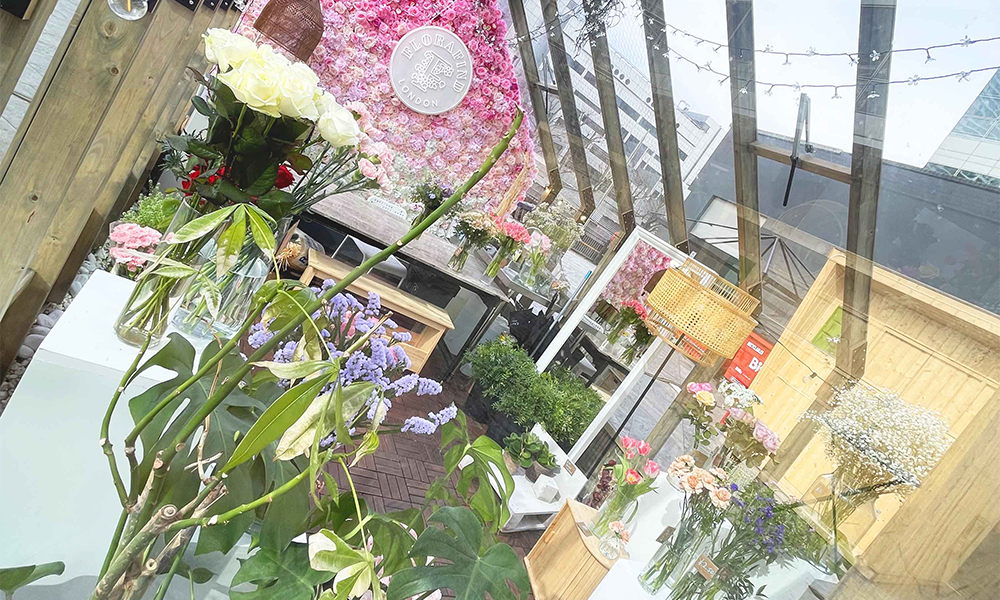
“We often go out to the countryside for a bit of freshness, a change of mood from the concrete city.
“That’s what we wanted to create here at Canary Garden.
“It’s based on wooden structures because we really wanted to build this as a reflection of nature.
“One of the disadvantages of living in an apartment in a city is that you don’t have a back yard and nowhere outdoors to spend time.
“At Hampton Tower there are 56 storeys, 2,000 people living on-site, but there is not much around the area – why not create something like a backyard?
“The idea is not too complicated.”
Already in place is a cafe, with indoor seating spread through three greenhouse-like structures.
Also up and running is Florafind, a florist offering bouquets and workshops.
Then there are a series of pine food kiosks which, from this month, will offer an array of culinary delights.
“We will have five food traders in total,” said Oscar.
“We’ve picked them from all across London and have tried to create a theme – at the moment the focus will be on oriental dishes.
“Each will celebrate a different cooking technique or niche dish.
“The first has a focus on the marination of ingredients, for example.
“The second will serve a particular type of noodles from the Chinese city of Suzhou, which is close to Shanghai.
“It’s a very traditional soup dish with one kind of noodle, two kinds of base, three kinds of topping.

“The third will be Hong Kong street food, cooked by a lovely couple who graduated a few years ago and started their own business to bring the younger generation’s understanding of the cuisine there over to the UK.
“Then, the fourth will be a halal barbecue – who doesn’t like that over the summer with a bit of drink?
“Finally, we will also have a rotating trailer spot, where we’ll have guest traders when we sense there is a seasonal thing people might want.
“The next will be serving Malaysian cuisine with laksa on offer.”
With matcha brownies at the cafe, already a firm favourite, readers could be forgiven for thinking that Canary Garden is simply a food hall with great views and plenty of outdoor space.
But Oscar’s vision for the site is wider.
“We also intend to host other workshops and events including afternoon teas,” said Oscar.
“We’re already in touch with other organisers to see what we can include.
“That might include calligraphy, watercolour painting and aromatherapy.
“We’re also looking at theoretical beekeeping without the insects.
“We’re also working in partnership with the Wutian Martial Art Institute, which is based around the corner, so when the weather is warmer their kids can come and enjoy the outdoor space and do some activities.”
While separate entities, recent arrival Theatreship and forthcoming arrival Artship, will be neighbours to Canary Garden – something Oscar believes fits well with what it offers.
“We have collaborated and for me, I call it toothbrush and toothpaste – two things that go together very well,” he said. “It works perfectly for their audiences.”
key details
Canary Garden’s cafe is currently open from Tuesday to Sunday from 10.30am-5.30pm. Food stalls are open from noon-8pm.
Group workshops at Florafind take place on Saturdays and Wednesdays and cost £90 per person for two hours.
Times vary and refreshments are included. Children’s workshops are available too and start at £55.
Find out more about Canary Garden here
Read more: How St James’ Bow Green development is at one with nature
Read Wharf Life’s e-edition here
Subscribe to our free Wharf Whispers newsletter here
- Jon Massey is co-founder and editorial director of Wharf Life and writes about a wide range of subjects in Canary Wharf, Docklands and east London - contact via jon.massey@wharf-life.com




